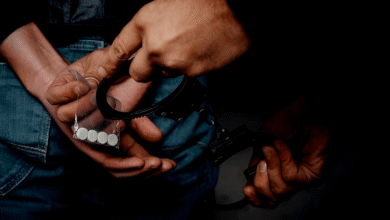LGBTQ+ Legal Protections in Illinois Civil Rights & Discrimination Laws
LGBTQ+ legal protections in Illinois ensure comprehensive anti-discrimination rights in employment housing healthcare and public accommodations. Learn your rights today

Illinois has established some of the nation’s strongest LGBTQ+ legal protections, ensuring equal rights and safeguarding against discrimination in employment, housing, healthcare, and public accommodations. As one of the first states to explicitly include sexual orientation and gender identity in its anti-discrimination laws, Illinois has been a leader in advancing LGBTQ+ civil Legal Protections. These protections reflect the state’s commitment to fostering an inclusive society where all individuals, regardless of identity, can live freely and without fear of prejudice. Over the years, legislative reforms and court rulings have further strengthened these rights, making Illinois a model for progressive policy.
Despite these advancements, challenges remain in enforcement and societal acceptance, particularly in rural areas where LGBTQ+ individuals may still face discrimination. Advocacy groups continue working to expand protections, address intersectional disparities, and ensure that existing laws are effectively implemented. This article explores the evolution of LGBTQ+ legal protections in Illinois, examining key laws, recent progress, and the ongoing fight for full equality. By understanding these legal safeguards, individuals can better advocate for their rights and hold institutions accountable for discrimination.
LGBTQ+ Legal Protections in Illinois Civil Rights & Discrimination Laws
Early Foundations of LGBTQ+ Rights in Illinois
The movement for LGBTQ+ rights in Illinois began with grassroots efforts to decriminalize same-sex relationships and combat police harassment of queer communities, particularly in Chicago. In 1961, Illinois became the first state to repeal its sodomy laws a landmark decision that set an early precedent for LGBTQ+ rights. Throughout the 1970s and 1980s, activists fought against discrimination in employment and housing while also organizing to address the AIDS crisis. These early struggles laid the groundwork for more comprehensive legal protections, culminating in the passage of the Illinois Human Rights Act (IHRA) in 2005.
Modern Advancements in LGBTQ+ Protections
The legalization of same-sex marriage in 2014 marked a turning point, granting LGBTQ+ couples full marital rights and recognition under state law. Building on this progress, Illinois passed additional protections, including a 2015 ban on conversion therapy for minors a harmful practice widely discredited by medical professionals. The state also implemented policies ensuring Legal Protections students’ access to gender-affirming facilities and activities in schools. More recently, Illinois expanded healthcare protections for transgender individuals, requiring insurance coverage for gender-affirming treatments. These measures reflect Illinois’ ongoing commitment to dismantling systemic discrimination and fostering an inclusive society where LGBTQ+ individuals can live freely and safely.
Key LGBTQ+ Anti-Discrimination Laws in Illinois
Illinois Human Rights Act
The IHRA is the cornerstone of LGBTQ+ legal protections in Illinois, prohibiting discrimination in employment, housing, financial transactions, and public accommodations. The law explicitly includes sexual orientation and gender identity as protected classes, ensuring that LGBTQ+ individuals cannot be denied jobs, housing, or services based on their identity. Employers with 15 or more employees must comply with these provisions, and violations can result in legal action through the Illinois Department of Human Rights (IDHR).
Marriage Equality and Adoption Rights
Illinois became a pioneer for marriage equality when it legalized same-sex marriage in 2014, extending full marital rights and benefits to LGBTQ+ couples. This landmark decision granted same-sex partners equal access to critical legal protections including joint tax filing status, spousal inheritance rights, medical decision-making authority, and insurance benefits. The state also guarantees equal treatment in family law matters, prohibiting discrimination against same-sex couples in adoption proceedings and foster care placements.
Ban on Conversion Therapy
In 2015, Illinois became one of the first states to ban conversion therapy for minors, recognizing the harmful psychological effects of such practices. Licensed healthcare providers are Legal Protections from subjecting LGBTQ+ youth to these discredited treatments, safeguarding their mental well-being.
Inclusive School Policies
Illinois schools are required to adopt anti-bullying policies that protect LGBTQ+ students, including transgender and non-binary youth. The state also mandates that students be allowed to use restrooms and participate in sports teams that align with their gender identity.
Healthcare Protections
Illinois has taken significant steps to protect transgender healthcare access through progressive legislation. The state requires all Medicaid plans and private insurers to cover gender-affirming treatments, including hormone therapy and surgical procedures, recognizing them as medically necessary care. Healthcare providers are legally prohibited from denying services based on a patient’s gender identity under the Illinois Human Rights Act. These policies align with standards set by major medical associations while combating discriminatory practices.
Challenges and Ongoing Advocacy
Persistent Enforcement Gaps and Regional Disparities
While Illinois has strong LGBTQ+ legal protections on paper, their enforcement remains inconsistent across the state. Rural communities often lack the resources and infrastructure to properly implement anti-discrimination laws, leaving LGBTQ+ individuals vulnerable to housing and employment bias. Many local law enforcement agencies in these areas also receive inadequate training on handling hate crimes against LGBTQ+ individuals, particularly transgender women of color who face disproportionate violence. Advocacy groups report difficulties in tracking discrimination complaints outside major cities like Chicago, where Legal Protections support networks are more established.
Intersectional Challenges and Ongoing Advocacy Efforts
The LGBTQ+ community in Illinois continues facing layered discrimination that combines with race, immigration status and socioeconomic factors. Undocumented LGBTQ+ individuals face particular barriers in accessing healthcare and legal protections due to fear of deportation. Meanwhile, Black and Latinx transgender women experience alarmingly high rates of violence and housing insecurity. Mental health services remain inaccessible for many low-income LGBTQ+ residents, especially youth in conservative areas. Advocacy organizations are now prioritizing these intersectional issues through policy initiatives like expanding language-accessible services, creating LGBTQ+ immigrant protections.
Read More: Gun Law Violations in Texas Legal Defenses That Work
Conclusion
Illinois has solidified its reputation as a leader in LGBTQ+ legal protections, with comprehensive laws that prohibit discrimination and promote equality across employment, housing, healthcare, and public life. From the landmark Illinois Human Rights Act to the ban on conversion therapy and protections for transgender students, the state has taken significant steps to ensure that LGBTQ+ individuals can live authentically and free from discrimination. However, while these legal frameworks are robust, their full impact depends on consistent enforcement, education, and cultural acceptance particularly in areas where bias persists. Continued advocacy remains essential to address gaps and ensure these protections translate into real-world safety and equity.
Looking ahead, Illinois must remain proactive in strengthening LGBTQ+ legal protections, particularly for marginalized communities facing intersecting forms of discrimination. Advances in policy must be paired with public awareness, better enforcement mechanisms, and support for LGBTQ+ youth, seniors, and undocumented individuals. By maintaining its commitment to inclusivity, Illinois can serve as a model for other states and push the nation toward broader acceptance. The fight for full equality is ongoing, but with strong legal foundations and sustained activism, the state is well-positioned to create a future where all LGBTQ+ individuals can thrive without fear of prejudice or Legal Protections.
FAQs
What does the Illinois Human Rights Act protect against?
The IHRA prohibits discrimination based on sexual orientation and gender identity in employment, housing, and public accommodations.
Is conversion therapy legal in Illinois?
No, Illinois bans conversion therapy for Legal Protections, protecting LGBTQ+ youth from harmful practices.
Can transgender students use restrooms matching their gender identity?
Yes, Illinois schools must allow students to use facilities that align with their gender identity.
Are same-sex couples entitled to adoption rights?
Yes, Illinois ensures equal adoption and Legal Protections rights for same-sex couples.
How can I report LGBTQ+ discrimination in Illinois?
Complaints can be filed with the Illinois Department of Human Rights (IDHR) or the U.S. Equal Employment Opportunity Commission (EEOC).











